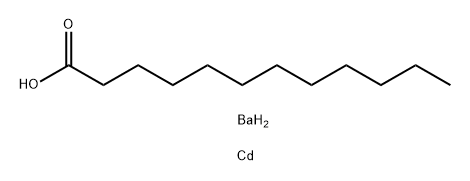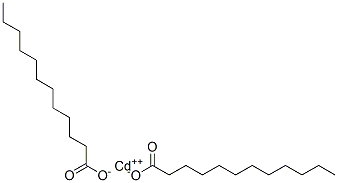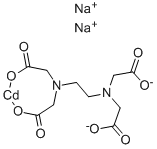CADMIUM HYDROXIDE
- CAS NO.:21041-95-2
- Empirical Formula: CdH2O2
- Molecular Weight: 146.43
- MDL number: MFCD00015995
- EINECS: 244-168-5
- SAFETY DATA SHEET (SDS)
- Update Date: 2024-12-18 14:07:02

What is CADMIUM HYDROXIDE?
Chemical properties
White powder
Physical properties
White powder or crystal; trigonal or hexagonal crystal system; density 4.79 g/cm3; decomposes slowly at 130°C; dehydration completes at 300°C; insoluble in water (2.6 mg/L at 20°C); soluble in dilute acids.
The Uses of CADMIUM HYDROXIDE
Cadmium hydroxide is used to prepare negative electrodes for cadmium-nickel batteries. It is a useful in biochemical for proteomics research. It may be used in cadmium plating and cadmium salt.
The Uses of CADMIUM HYDROXIDE
In storage battery electrodes.
What are the applications of Application
Cadmium hydroxide is a useful biochemical for proteomics research
Preparation
Cadmium hydroxide may be precipitated by adding any cadmium salt solution to a boiling solution of caustic soda or caustic potash:
CdCl2 + 2NaOH → Cd(OH)2 + 2NaCl.
Properties of CADMIUM HYDROXIDE
| Melting point: | 232 °C(lit.) |
| Density | 4.79 g/mL at 25 °C(lit.) |
| solubility | Soluble in dilute acids, NH{4}Cl solutions |
| form | Powder |
| Specific Gravity | 4.79 |
| color | white trigonal or hexagonal, hexane crystals, crystalline |
| PH | 9.36(1 mM solution);9.36(10 mM solution);9.36(100 mM solution) |
| Water Solubility | Soluble in dilute acids. Slightly soluble in water; 0.026 g/100 mL. |
| Sensitive | Air Sensitive |
| Merck | 14,1620 |
| Solubility Product Constant (Ksp) | pKsp: 14.14 |
| Exposure limits | ACGIH: TWA 0.01 mg/m3; TWA 0.002 mg/m3 NIOSH: IDLH 9 mg/m3 |
| CAS DataBase Reference | 21041-95-2(CAS DataBase Reference) |
| EPA Substance Registry System | Cadmium hydroxide (Cd(OH)2) (21041-95-2) |
Safety information for CADMIUM HYDROXIDE
| Signal word | Danger |
| Pictogram(s) |
 Skull and Crossbones Acute Toxicity GHS06  Exclamation Mark Irritant GHS07  Health Hazard GHS08  Environment GHS09 |
| GHS Hazard Statements |
H302:Acute toxicity,oral H312:Acute toxicity,dermal H330:Acute toxicity,inhalation H332:Acute toxicity,inhalation H341:Germ cell mutagenicity H350:Carcinogenicity H372:Specific target organ toxicity, repeated exposure H400:Hazardous to the aquatic environment, acute hazard H410:Hazardous to the aquatic environment, long-term hazard |
| Precautionary Statement Codes |
P201:Obtain special instructions before use. P260:Do not breathe dust/fume/gas/mist/vapours/spray. P261:Avoid breathing dust/fume/gas/mist/vapours/spray. P273:Avoid release to the environment. P321:Specific treatment (see … on this label). P304+P340:IF INHALED: Remove victim to fresh air and Keep at rest in a position comfortable for breathing. P308+P313:IF exposed or concerned: Get medical advice/attention. P403+P233:Store in a well-ventilated place. Keep container tightly closed. |
Computed Descriptors for CADMIUM HYDROXIDE
CADMIUM HYDROXIDE manufacturer
New Products
(S)-3-Aminobutanenitrile hydrochloride 4-Methylphenylacetic acid N-Boc-D-alaninol N-BOC-D/L-ALANINOL Tert-butyl bis(2-chloroethyl)carbamate N-octanoyl benzotriazole 3-Morpholino-1-(4-nitrophenyl)-5,6-dihydropyridin- 2(1H)-one Furan-2,5-Dicarboxylic Acid S-2-CHLORO PROPIONIC ACID ETHYL ISOCYANOACETATE 2-Bromo-1,3-Bis(Dimethylamino)Trimethinium Hexafluorophosphate 4-IODO BENZOIC ACID 3-NITRO-2-METHYL ANILINE 1-(2,4-DICHLOROPHENYL) ETHANAMINE (2-Hydroxyphenyl)acetonitrile 4-Bromopyrazole 5,6-Dimethoxyindanone 2-(Cyanocyclohexyl)acetic acid 4-methoxy-3,5-dinitropyridine 1-(4-(aminomethyl)benzyl)urea hydrochloride 2-aminopropyl benzoate hydrochloride diethyl 2-(2-((tertbutoxycarbonyl)amino) ethyl)malonate tert-butyl 4- (ureidomethyl)benzylcarbamate Ethyl-2-chloro((4-methoxyphenyl)hydrazono)acetateRelated products of tetrahydrofuran








You may like
-
 Cadmium hydroxide CAS 21041-95-2View Details
Cadmium hydroxide CAS 21041-95-2View Details
21041-95-2 -
 Cadmium hydroxide CAS 21041-95-2View Details
Cadmium hydroxide CAS 21041-95-2View Details
21041-95-2 -
 Cadmium hydroxide CAS 21041-95-2View Details
Cadmium hydroxide CAS 21041-95-2View Details
21041-95-2 -
 21041-95-2 99%View Details
21041-95-2 99%View Details
21041-95-2 -
 1975-50-4 98%View Details
1975-50-4 98%View Details
1975-50-4 -
 2-HYDROXY BENZYL ALCOHOL 98%View Details
2-HYDROXY BENZYL ALCOHOL 98%View Details
90-01-7 -
 14714-50-2 (2-Hydroxyphenyl)acetonitrile 98+View Details
14714-50-2 (2-Hydroxyphenyl)acetonitrile 98+View Details
14714-50-2 -
 118753-70-1 98+View Details
118753-70-1 98+View Details
118753-70-1
Statement: All products displayed on this website are only used for non medical purposes such as industrial applications or scientific research, and cannot be used for clinical diagnosis or treatment of humans or animals. They are not medicinal or edible.